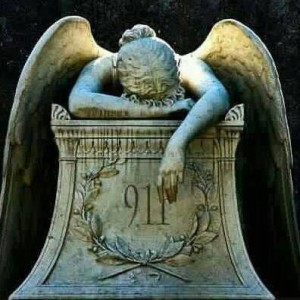
The Sunday morning following 9/11 found my wife and I in church (for reasons a bit too involved to explain right here and now) and specifically in an adult Sunday School class. Naturally, the question came up of why God allows major tragedies, and just as naturally, the usual weak excuses were given: Divine Prime Directive, God respects the free will of terrorists (way more than that of their victims), God has mysterious reasons for allowing horrific mass-slaughter, but it’s all good because of perfect justice in the afterlife, etc.
I didn’t get any particularly thoughtful answers that morning, and quite probably outed myself as a skeptic in the process of demanding that my church friends take the problem of evil more seriously. Later on, I privately posited something like the following to another friend of mine:
Imagine that you are a highly-skilled computer hacker who has found a backdoor into the United Airlines booking system in the week prior to 9/11. You have the power to go into the computers and erase certain ticketed passengers from the manifests of Flight 175 and Flight 93. Would you feel obligated to act, knowing what you know now?
Of course he would have, as would anyone with even an inkling of humanist empathy for their fellow human beings. One might also have the decency to anonymously tip off certain authorities about those passengers. A single well-informed human being could do it all of that from a single computer terminal, which is fairly far from omnipotence but good enough to get the job done.
Whenever I talk to Christians about this sort of hypothetical scenario, they almost invariably affirm all of the following propositions:
- They would be personally obligated to act so as to avert tragedy, as moral agents
- The Lord God Almighty would not be obligated to act to avert tragedy
- The Lord God Almighty is the exemplar of a perfectly righteous moral agent
I’m entirely unclear on how they expect that these propositions can possibly fit together. Either God is a exemplary moral agent with the usual obligations of any moral agent to increase well-being and decrease gratuitous suffering, or else it is meaningless to call him “good” or morally exemplary. Fans of Alvin Plantinga will retreat to possibility here, naturally, saying that it may well be that the 9/11 attacks actually made the world a better place in the long run. Possibility isn’t probability, of course, or more precisely is it any probability above zero, however vanishingly small.
Today, all day long, I invite you to talk to your Christian friends about this.
